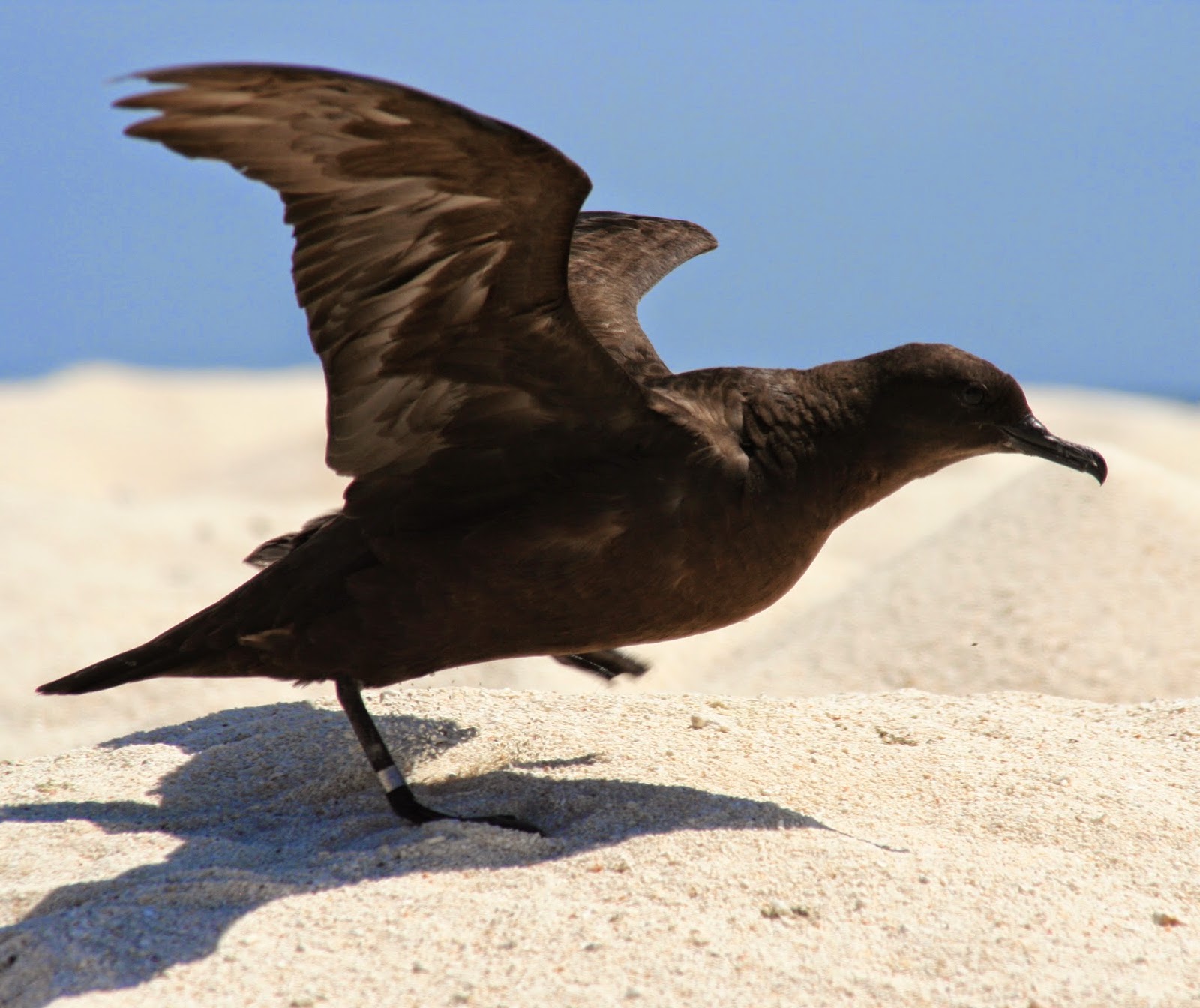 |
| Photo by Duncan Wright (Wikipedia) |
Common name:
Christmas shearwater (en); pardela-de-Natal (pt); puffin de la Nativité (fr); pardela de la Navidad (es); weihnachts-sturmtaucher (de)
Taxonomy:
Order Procellariiformes
Family Procellariidae
Range:
This species breeds in remote islands in the central Pacific, from the Hawaiian Islands, south to Phoenix Island and Kiritimati Island in Kiribati, and east to the Marquesas Islands, French Polynesia and Easter Island. Outside the breeding season they ranges across the Pacific, as far as the coasts of Mexico, northern Chile and the Bonin Islands of Japan.
Size:
These birds are 33-38 cm long and have a wingspan of 83-90 cm. They weigh 270-415 g.
Habitat:
The Christmas shearwater breeds in remote oceanic islands, in areas with dense vegetation and rocky crevices. They forage over pelagic water, occuring over warm waters and generally keeping away from land except near colonies.
Diet:
They usually forage in association with other seabirds and consuming prey that has been driven to the surface by schools of predatory fish such as skipjack tuna Katsuwonus pelamis. They mainly take larval fish and squids, also taking some crustaceans.
Breeding:
Christmas shearwaters can breed all year round, varying among different parts of their range. They nest on a shallow depression in the ground or a simple nest of small twigs and leaves, where the female lays 1 white egg. The egg is incubated by both parents for 50-54 days. The chick is fed by both parents and fledges 100-115 days after hatching.
Conservation:
IUCN status – LC (Least Concern)
This species has an extremely large range and the global population is estimated at 100.000-300.000 individuals. The population is suspected to be stable in the absence of evidence for any declines or substantial threats.







